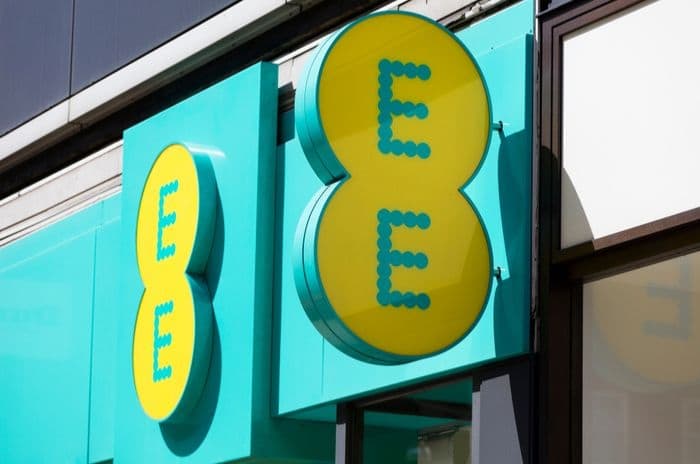Home > Mobile > News > EE launch ultrafast mobile broadband network
EE launch ultrafast mobile broadband network
EE have begun rolling out their 4G+ mobile broadband network in London and Cardiff, with other cities also scheduled this year to start enjoying speeds of over 400Mb.

Marking the launch, EE used the recently launched Sony Xperia XZ Premium to demonstrate download speeds of 429Mb in the centre of Cardiff, although they expect that the majority of devices will generally receive speeds topping 50Mb.
Such a feat effectively means that the BT-owned operator have cleared the ultrafast mobile broadband hurdle before Three UK, who recently outlined their own plans to launch an ultrafast mobile broadband network.
And in its own way, the launch also undermines an argument recently proposed by certain telecoms analysts, which is that the broadband industry is failing to innovate.
Fastest ever download speeds
Standardisation of 5G has begun
BT and Huawei team up for 5G
Is data from Three really 'free'?
What's most impressive about EE's 4G+ network is that, rather than relying on some entirely new set of standards (such as 5G), it achieves ultrafast speeds by making the most of what currently exists.
In London and Cardiff, the network makes uses of two rather than one frequency bands, combining 30MHz of the 1800MHz spectrum and 35MHz of the 2.6GHz spectrum in order to provide greater bandwidth and capacity.
Added to this, EE are also harnessing 4x4 MIMO (multiple-input and multiple-output) technology, which transmits and receives four rather than two signals. Similarly, they're exploiting a process known as Quadrature Amplitude Modulation, which improves the signal's efficiency.
Together, these various elements result in "the UK's fastest ever real world mobile download speeds", something which will further cement EE's reputation for offering the best mobile phone network in terms of performance.

Source: EE
It will also put something of a damper on Three UK's recently publicised plans to bring an ultrafast wireless broadband network to 40% of Britain by 2020, although to be fair, such a mobile network is being intended for home rather than outdoors use.
Coming soon to a town near you
However, as impressive as speeds in excess of 400Mb undoubtedly are, the accessibility of EE's 4G+ network will remain restricted in the short term.
For one, it's currently available in only Cardiff and London, and even in London the coverage is restricted to the Tech City (or Silicon Roundabout) area in the east of the city, between Old Street and Shoreditch.
EE state that "the capacity will be built across central London" in the not-too distant future, while Edinburgh, Manchester and Birmingham will also be connected to the network by the end of this year.
As their CEO, Marc Allera, said, "We're rolling out this new capability in Cardiff and London's Tech City, and we'll keep expanding to the busiest areas of the UK so that our customers always have a great connection to do the things they love".
Yet even when more cities are part of the network, it's likely that most customers won't be able to receive ultrafast speeds.
As EE explain, the network's launch was partly timed to coincide with the launch of Sony's Xperia XZ Premium, which is "the UK's first 'Cat 16' smartphone", while "EE is the only mobile network that can support the new device's unique upload and download capabilities".
In other words, customers will need a Category 16-compatible device to receive speeds of 400Mb, since these are the only devices capable of combining spectrum from multiple bands.
For the rest, EE report that "customers connected to these sites should be able to consistently experience speeds above 50Mbp", which still puts them ahead of any other 4G network currently on the market.
The 4G curse?
One other thing that the launch of the 4G+ network shows is that, contrary to forecasts from some analysts, mobile and broadband providers are capable of continual innovation, even with standards (such as 4G) that have been available for a while.
For example, in 2014, we asked whether EE can "survive the 4G curse", suggesting that their superiority on speed might disappear as more people joined their network and clogged it up with traffic.
Well, given that they've continued to rank first on surveys for speed and performance, it would appear that this suggestion was wrong, not least when EE have now boosted the speed of their network even further.
Much the same could also be said of the idea - proposed over the weekend by certain analysts in an article for the Financial Times - that telecoms companies are failing to innovate, with EE's new 4G+ network providing a prime counterexample.
It's now just a question, however, of whether there are enough customers out there with the desire to keep up with such innovations.
Get insider tips and the latest offers in our newsletter

We are independent of all of the products and services we compare.

We order our comparison tables by price or feature and never by referral revenue.

We donate at least 5% of our profits to charity, and we aim to be climate positive.
Latest News

5 December 2024
Merger of Vodafone and Three UK approved
19 August 2024
New O2 Essential Plan for those on social benefitsGet insider tips and the latest offers in our newsletter



